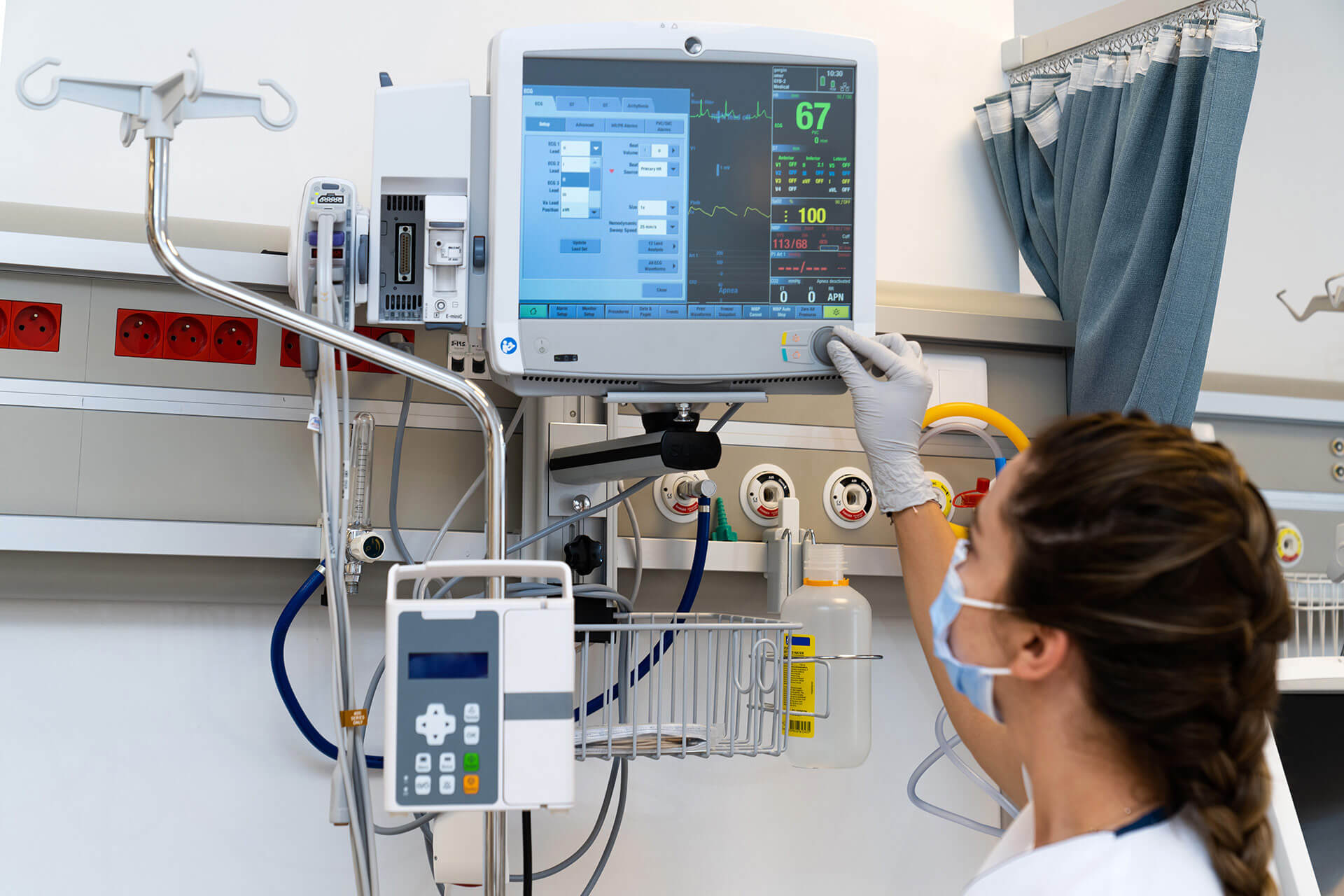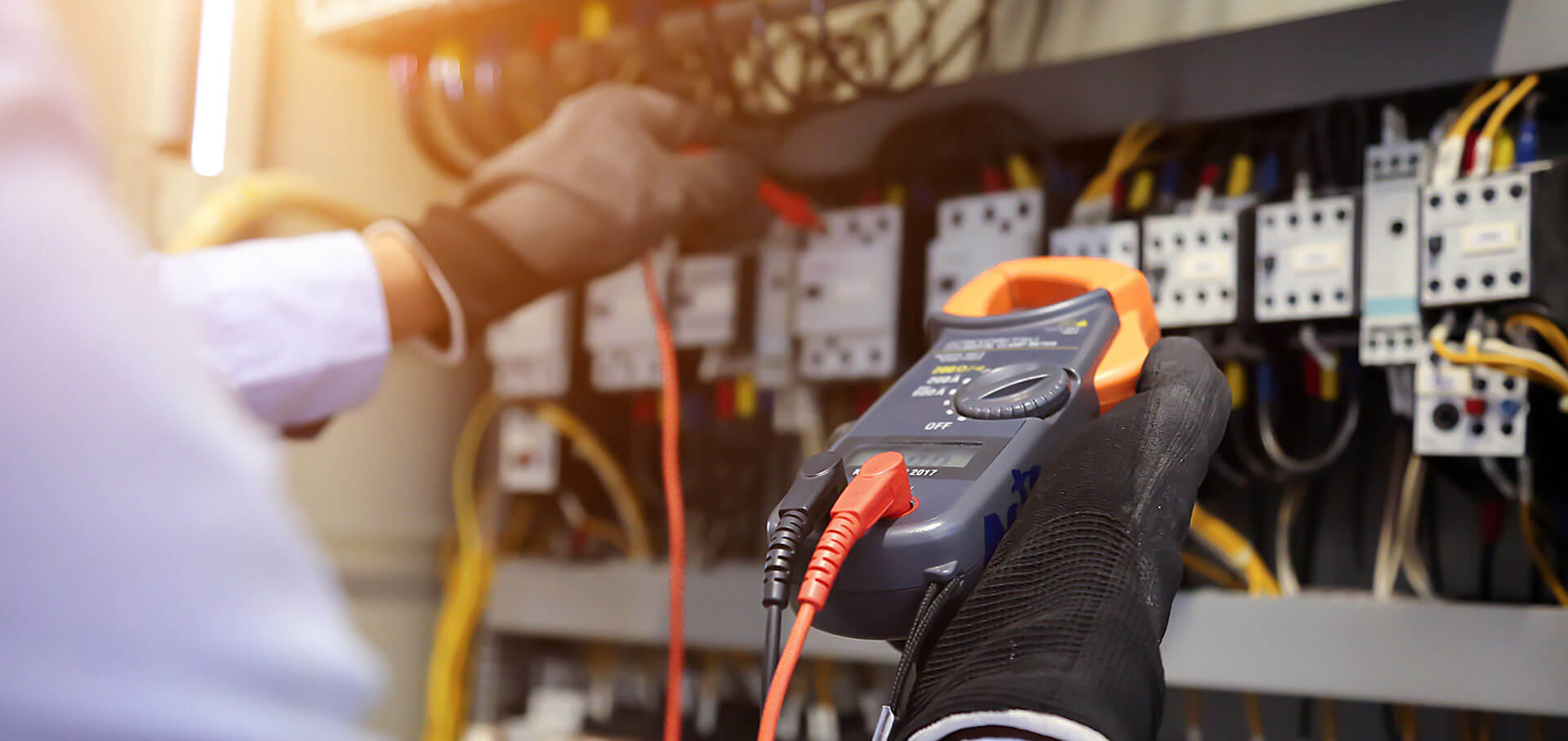What happens when there is a power cut in a hospital? What if the power outage is due to a heat wave?
Electricity supply is an essential component in modern society, providing power to a wide range of sectors, including healthcare. However, in extreme situations, such as intense heat waves, the electrical grid can be overloaded and collapse, which can have very significant consequences for hospitals and healthcare in general.
Today we want to explore the possible implications of a power grid collapse due to heat, focusing on hospitals and healthcare facilities.
The danger of climate change in summer
Power grids may be resilient, but they are still vulnerable.
And Spain is an oven in summer.
The heat wave that prevails throughout the country from the end of June to mid-September keeps several communities at extreme risk (red alert), significant risk (orange alert) and risk (yellow alert) due to maximum temperatures. Temperatures that in some cases have touched 44 degrees, according to the State Meteorological Agency (Aemet).
The heat records that are breaking this decade tell us that days over 40 degrees are no longer an exception.

A serious problem for the electricity grid
The challenge of a heat wave is that a power grid has to constantly balance its power supply and power demand.
When the temperature rises, more people turn on air conditioning (AC) and the grid operator has to increase power generation.
Given these circumstances, power grid companies fear blackouts due to the high use of AC due to heat waves. In fact, different investigations detail that, at this rate and taking into account the large amount of energy that people generate when turning on devices such as air conditioning, we could experience large electrical blackouts that would only put citizens in greater danger.

The consequences of the heat wave
The electrical grid is a critical component in the operation of modern hospitals, providing the energy needed to power medical equipment, life support systems, and maintain the supply of medicines and other essential resources.
The reliance on electricity in hospitals is reflected in the use of medical equipment and life support systems, such as cardiac and vital signs monitors, ventilators and respirators, or infusion pumps and dialysis equipment.
In addition to the maintenance of medicines and supplies, sterilization and conservation equipment and the power supply itself for operating rooms and emergency rooms.
So, what can the momentary collapse of the electrical network mean in a health center?
To begin with, we would be facing an interruption of medical equipment and life support systems, which implies numerous risks for patients in critical condition, either due to the interruption of vital sign monitoring, the lack of adequate respiratory support.
There would also be a shortage of resources and medical personnel, with limitations in the supply of oxygen and other medical gases and difficulties in performing surgeries and medical procedures, especially with hospital robots.
In turn, this would result in a lack of medical supplies and refrigerated medicines, seriously jeopardizing the proper storage and preservation of medicines, the deterioration of heat-sensitive medicines or the loss of essential drugs.
We also add the impact on treatments and scheduled surgeries, having to cancel non-urgent surgeries.
In general, we are talking about serious problems due to the instability of the hospital infrastructure, which translates into:
- Risks for the safety and quality of the hospital environment.
- Failures in lighting and water supply.
- Refrigeration and air conditioning problems.
- Limitations on access to medical care.
- Closure of hospital services and departments.
- Difficulties in transporting patients.
This is how a power outage can affect our health
To better understand the magnitude of the problem, let’s see more examples in detail.
Monitoring patients, providing them with assisted breathing or other treatments such as dialysis, becomes unfeasible, as is being able to perform medical tests, such as ultrasound, MRI or X-rays.
Defibrillators and other essential devices in times of emergency become useless. The material cannot be sterilized with the appropriate machines.
The mechanisms used for the center’s workers to communicate with each other and with the patients do not work either.

How to avoid a hospital electrical blackout due to the heat wave?
Logically, one of the main response and mitigation measures for these problems is investing in green energy.
Green hydrogen, produced through renewable energy such as solar or wind power, has gained a lot of relevance in recent years due to its potential to reduce greenhouse gas emissions.
But there is much more.
Most centers have generators that supply electricity to the building until the problem is solved, but they may be insufficient if the problem continues.
Therefore, it is essential to develop contingency plans and staff training for emergency situations.
Undoubtedly, it is also necessary to be able to generate alternative energy and have backup systems, for example from the use of electric generators, the implementation of energy storage systems, etc.
In short, it is about improving hospital electrical networks, which is already a global need, in order to solve this problem with all the guarantees.

A recent case to understand the complexity
In 2019 there was an electrical blackout in Tenerife.
As Luis Talavera, director of Engineering at the Hospital de Gran Canaria Doctor Negrín, explained to Redacción Médica, the hospitals saw the electricity supply interrupted, which is why it was necessary to activate their own generator sets that are already “prepared for these cases, although there are machines that due to their power and nature are not connected to the building’s generator set”.
It is noteworthy that the normal operation of the hospital is affected, so at that time the less critical activities have to stop and “non-urgent surgical interventions are not carried out,” according to Talavera, who recalled that the centers have generator power supply, as well as uninterruptible power supply systems with autonomous batteries to supply the most critical areas, and “ultimately own batteries in life support devices.”
Improve the sanitary electrical infrastructure
In conclusion, a collapse of the electrical network due to extreme heat, among other reasons, puts the health of patients at serious risk; it makes the work of health personnel extremely difficult; and it can harm the health electrical infrastructure, whose dependence for the operation of medical equipment and support systems cannot be negotiated.
Investment in resilient infrastructures, alternative energies and modernized hospital electrical systems, with alarm repeaters, grounding, uninterruptible power supply, etc. it becomes crucial to minimize the impact of electrical breakdowns in hospitals.



